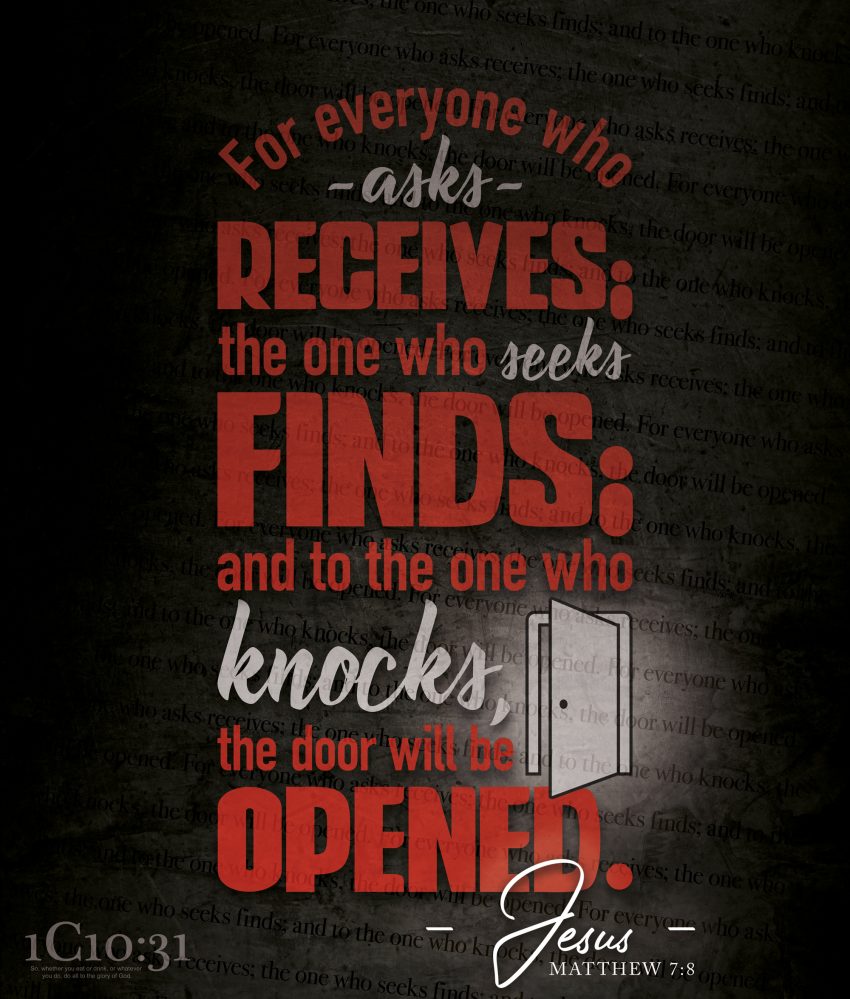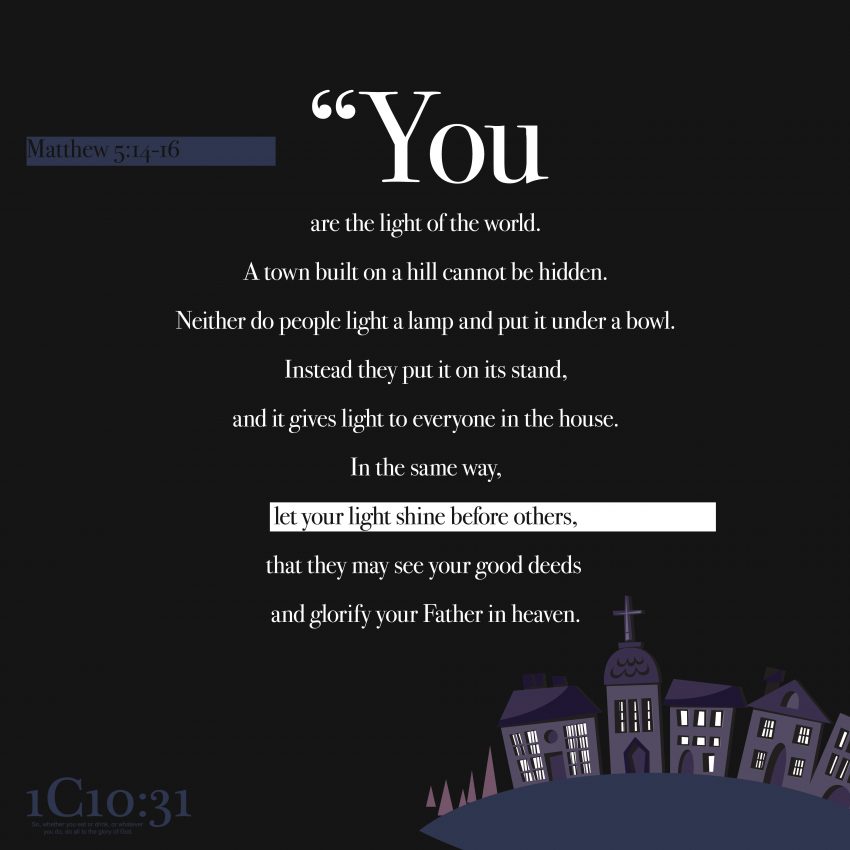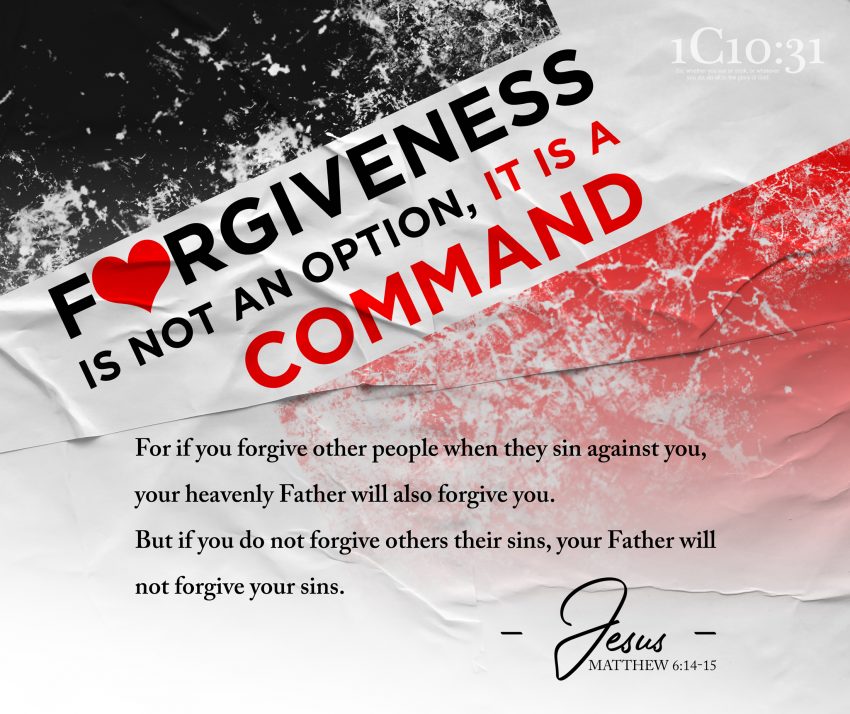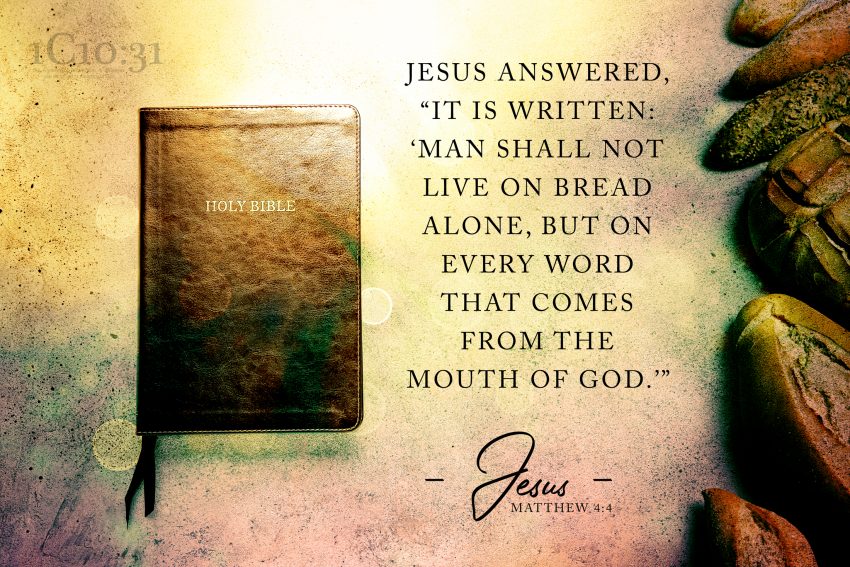“But what about you?” he asked. “Who do you say I am?” Simon Peter answered, “You are the Messiah, the Son of the living God.”
Matthew 16:15-16
Tag: Matthew
Matthew 7:8
For everyone who asks receives; the one who seeks finds; and to the one who knocks, the door will be opened.
Matthew 7:8
Matthew 5:14-16
“You are the light of the world. A town built on a hill cannot be hidden. Neither do people light a lamp and put it under a bowl. Instead they put it on its stand, and it gives light to everyone in the house. In the same way, let your light shine before others, that they may see your good deeds and glorify your Father in heaven.
Matthew 5:14-16
Forgiveness Is Not An Option – It Is A Command
For if you forgive other people when they sin against you, your heavenly Father will also forgive you. But if you do not forgive others their sins, your Father will not forgive your sins.
Matthew 6:14-15
The Ten Commandments of Jesus: 6. Forgive Others
Matthew 18:15-22
“If your brother or sister sins, go and point out their fault, just between the two of you. If they listen to you, you have won them over. But if they will not listen, take one or two others along, so that ‘every matter may be established by the testimony of two or three witnesses.’ If they still refuse to listen, tell it to the church; and if they refuse to listen even to the church, treat them as you would a pagan or a tax collector.
“Truly I tell you, whatever you bind on earth will be bound in heaven, and whatever you loose on earth will be loosed in heaven.
“Again, truly I tell you that if two of you on earth agree about anything they ask for, it will be done for them by my Father in heaven. For where two or three gather in my name, there am I with them.”
Then Peter came to Jesus and asked, “Lord, how many times shall I forgive my brother or sister who sins against me? Up to seven times?”
Jesus answered, “I tell you, not seven times, but seventy-seven times.
One of the great certainties of life, besides death and taxes, is that people will disappoint us.
I know when I put it like that it sounds hugely pessimistic and cynical, like a statement that would get a big old red flag if I wrote it on one of my psychological assessments for ministry.
But I don’t mean to be cynical or pessimistic: it’s just the reality of life lived together. People make promises and break them; they say and do things that are hurtful; they get wrapped up in themselves and forget to think about others. In life, many of our greatest blessings are other people, and yet inevitably, people will let us down. Of course, we will let them down too.
When we started this series in January, the first commandment I talked about was Seek Forgiveness. Today we come back to the flip side of that commandment: Forgive Others.
Everyone knows, whether they go to church or not, that if you are someone who is trying to follow Jesus and live in the way that Jesus taught, forgiveness is part of the deal. And yet it can be one of those things that sounds like such a good idea in general, and such a bad idea in particular. Like a good rule to live by overall, and yet impossible to apply in certain situations.
A friend of a friend of mine had been estranged from a family member for a long time over a disagreement they had had. My friend at one point said to this person, “You’re a churchgoing person, aren’t you? What about forgiveness? Doesn’t Christ say to forgive?”
Their friend responded, “Well, that’s where I think Christ was wrong.”
We’ve probably all been there at one time or another.
But Christ wasn’t wrong about this one, I don’t think. It’s just, like a lot of things, easier said than done.
Unlike a lot of the other commandments in this series, this one doesn’t come from the Sermon on the Mount. Jesus isn’t preaching to a big group of people here. Instead, later in the gospel, he’s teaching his disciples. It starts when they ask him, “Who is the greatest in the kingdom of heaven?” and he tells them to become like children. And then he continues, some stuff about avoiding temptation, and he tells the parable of the lost sheep, and then, what to do if another member of the church sins against you.
If a commandment of forgiveness ever seemed overly idealistic, this passage should make us stop and think again, because Jesus, who is no stranger to being disappointed by people, is a realist. He assumes that if you live life in a community of faith, just like in any other community, people are going to hurt you. And he gives a kind of script for what to do when they do: first, go and talk to them frankly, one on one. (In other words, don’t start by going around telling everyone else what a jerk they are.) If that doesn’t work, bring a witness or two, so they can corroborate what’s happening. And if that still doesn’t work, then maybe that person can’t be part of the community anymore at the moment. In that case, Jesus says, “let such a one be to you as a Gentile and a tax collector.”
Of course, we know how Jesus treated Gentiles and tax collectors: he welcomed them, and went to their parties, and showed them grace.
But for anyone who thinks Jesus is starting to seem too realistic, now, Peter pipes up. Peter knows that even if someone says they’re very sorry, sometimes forgiveness just doesn’t seem like a good idea. Sometimes too much forgiveness just starts to feel like being a sucker. Sometimes a person just hurts you too badly, or too much. This is where Peter thinks Christ might be wrong about the whole forgiveness thing. So he asks: “Lord, if another member of the church sins against me, how often should I forgive? As many as seven times?” And Jesus famously responds, “Not seven times, but I tell you, seventy-seven times.” Or, depending on your translation, seventy times seven times.
It’s a familiar passage, but it should knock the wind out of us a little, because either way, that’s a lot of times, and either way, Jesus is telling us that sometimes, we’re supposed to forgive people even when it seems like a terrible idea. And by the way, if you think you’re off the hook because Peter is only asking about other members of the Christian community here, remember that Jesus also showed grace to the Gentiles and tax collectors, and it’s pretty likely he expected his followers to as well. The Christian community is one community in which people will inevitably hurt us, but it is far from the only one.
Let’s face it: sometimes, in context, forgiveness does just seem like a terrible idea. At times it might even be downright offensive.
Sometime last spring or summer I read about a woman named Eva Kor, a German Jew who is a survivor of Auschwitz. Most of her family was killed there. Eva herself was used as a subject in “brutal” medical experiments, and she too almost died. She described Auschwitz as “hell on earth.”
Last year, Eva Kor returned to Germany to testify at the trial of 93-year-old Oskar Groening, a former Auschwitz guard who was subsequently charged with 300,000 counts of accessory to murder. After testifying, Eva Kor went to talk to Oskar Groening, to thank him for owning up to his crimes. She said she forgave him.
Not everyone thought that this was a wonderful thing, and you can understand why. Other people, including other Holocaust survivors, did not think this was a man who deserved forgiveness. They did not think she had the right to personally forgive a crime committed against so many. And I imagine they thought that to say this evil was something that could be forgiven was not to take it seriously for the evil it was.
One can see their point. And yet, for this one woman, forgiveness, somehow, was possible.
Sometimes, it seems, trying to be like Jesus will mean doing things that are offensive—sometimes most of all to ourselves.
And yet as offensive as they may be from some perspectives, it’s also stories like these that inspire us, that help us to believe the best about humanity. Who can forget when a gunman burst into a one-room Amish schoolhouse in 2006, shot eight students ages 13 and under, and killed five of them? And who could forget just last summer when white supremacist Dylann Roof sat in on a Bible study at Emanuel African Methodist Episcopal Church in Charleston and shot and killed nine members of that church? In both cases, through their pain, the community expressed forgiveness. And we watched, and we wondered how it was possible, and in the midst of all the world’s brokenness, our faith was a little bit restored. At least mine was.
It was stories of forgiveness that first drew me in the direction of ministry, as I’ve told you before: it was reading Desmond Tutu’s book No Future Without Forgiveness, about South Africa’s Truth and Reconciliation Commission after the end of apartheid, in a freshman college class that made me want to do the same kinds of good things in the world that he did.
But it made me want to do something more than that, too. It made me want to forgive.
The stories I read in that book were horrible stories, like some of the ones I’ve already mentioned. They were stories of cold-blooded killings of black activists by whites in power, stories of people who disappeared, children who were murdered, stories of people burning human flesh while they drank beer and had a barbecue on the side. All in the name of preserving the power of the ruling white minority. And they were the stories of the people who forgave them, in exchange for simply hearing the truth.
As a white person living in America, nothing like any of those stories has ever happened to me. In fact, the most I felt like I had to forgive in my life up to that point was a high school boyfriend who had been kind of a jerk. But I read this book and I wanted to forgive him, along with all the other mundane sins people had committed against me in my life. I wanted to, because this book made me believe that forgiveness wasn’t just possible, it was the only way to live.
It was a point that No Future Without Forgiveness made even in its title—for South Africa, this was the only way forward. It wouldn’t do to pretend the past had never happened and just move on. It wouldn’t help to seek retribution against everyone complicit in apartheid in a way that might only perpetuate racial conflict. The past had to be faced, and forgiven. And the same was true for individuals—for the sake of the future, the past had to be not swept under the rug, not clung to bitterly, but faced, and forgiven.
After the trial of her Auschwitz guard, Eva Kor said: “My forgiveness is my act of self-healing, self-liberation, and self-empowerment.”
I’ve also heard it said, “Resentment is like drinking poison and expecting the other person to die.”
As much as I love this idea, as much as it inspired me in college, it is something I struggled with as I prepared for this sermon, and I wondered what Jesus would say. Would Jesus agree that forgiveness is fundamentally about me, the person who forgives? Is it an act I do on behalf of myself and my emotional health? Or is it an act that I do on behalf of others, because Jesus simply calls us to that high of a standard?
I don’t know, honestly, but I suspect that it’s both. I suspect that Jesus wants us to forgive people because a life of resentment and bitterness is no life at all, and because forgiveness frees us for the abundant life God wants for us. And I also suspect that Jesus wants us to forgive people over and over again because it’s the only way to live for all of us, together, in an economy of grace. Sometimes we will need forgiveness, and sometimes we will have to give it, and it’s probably no good to try to keep track. And as we pray in the Lord’s Prayer each week, “Forgive us our trespasses, as we forgive those who trespass against us.” You can’t have one without the other, because then the whole economy falls apart. And if God has shown us mercy, who are we to withhold mercy from others?
But even if we want to forgive, there’s still the question of how. What does forgiveness mean, really? What does it look like? Does it mean going back for more of the same hurt, seventy times seven times? Does it mean the full restoration of a relationship? Or does it simply mean setting ourselves free?
Maybe the answers depend a lot on who, and what, and when, and have a lot more to do with prayerful discernment than rote answers. Forgiveness, for example, may mean reconciliation with a family member who deeply hurt you, but it doesn’t mean submitting to ongoing abuse. The person who hurt you may be deeply sorry, or may not be sorry at all, and forgiveness might look different in those situations. The person you forgive may still be in your life, or they may not be, and the right thing might be to let them know, if you even can, and the right thing might be to write a letter you never send. Forgiveness is complicated. And Jesus is a realist, so he knows that.
I do love this image of forgiveness from the novel The Shack. This is the story of a man named Mack whose daughter Missy is abducted and killed on a family camping trip. Mack eventually returns to the spot where Missy was killed, and there he encounters God as the three persons of the Trinity. Toward the end of his journey, Mack is having a deep conversation with God the Father, whom he calls Papa, and Papa makes it clear that the final part of Mack’s journey is to forgive the man who killed his daughter.
“Papa,” says Mack, “how can I ever forgive that SOB who killed my Missy? If he were here today, I don’t know what I would do. I know it isn’t right, but I would want to hurt him like he hurt me. If I can’t get justice, I want revenge.”
“Mack,” says Papa, “for you to forgive this man is for you to release him to me and allow me to redeem him.”
“Redeem him?” Mack says. “I don’t want you to redeem him! I want you to hurt him, to punish him, to put him in hell. I’m stuck, Papa. I just can’t forget what he did, can I?”
“Forgiveness is not about forgetting, Mack. It is about letting go of another person’s throat.”
“Help me, Papa, what do I do? How do I forgive him?”
“Tell him,” says Papa.”
“How?”
“Just say it out loud. There is power in what my children declare.”
So Mack tries. He says it out loud: I forgive you, I forgive you, I forgive you. Then he asks: “Is it all right if I’m still angry?”
Papa says, “Absolutely. … But don’t let the anger and pain and loss you feel prevent you from forgiving him and removing your hands from around his neck. Son, you may have to declare your forgiveness a hundred times the first day and the second day, but the third day will be less and each day after, until one day you realize that you have forgiven completely.”
It occurs to me that when Jesus tells Peter to forgive someone seventy-seven times—sometimes that’s just for one thing. Seventy-seven days of saying it out loud trying to mean it: I forgive you. Seventy-seven times of letting it go, and taking it back, and letting it go again. Seventy-seven times, until you stop keeping track and keep letting go for as long as it takes.
And maybe, when forgiveness won’t come, we rely on the same grace we’ve come to count on for forgiveness. Someone pointed out to me recently that when Jesus was on the cross, he didn’t say, “I forgive you, for you know not what you do.” He said, “Father, forgive them.” When we can’t even utter those words, “I forgive you,” maybe instead we can say, “God, I release this person to you.”
And our hands loosen, just a little bit, from around their neck, and a part of us comes free.
Source: https://godspeopleintheworld.wordpress.com/2016/02/22/the-ten-commandments-of-jesus-6-forgive-others
Matthew 4:4
Jesus answered, “It is written: ‘Man shall not live on bread alone, but on every word that comes from the mouth of God.’”
Matthew 4:4
Jesus Is Tested in the Wilderness
Matthew 4:1-11
Then Jesus was led by the Spirit into the wilderness to be tempted by the devil. After fasting forty days and forty nights, he was hungry. The tempter came to him and said, “If you are the Son of God, tell these stones to become bread.”
Jesus answered, “It is written: ‘Man shall not live on bread alone, but on every word that comes from the mouth of God.’”
Then the devil took him to the holy city and had him stand on the highest point of the temple. “If you are the Son of God,” he said, “throw yourself down. For it is written:
“‘He will command his angels concerning you,
and they will lift you up in their hands,
so that you will not strike your foot against a stone.’”
Jesus answered him, “It is also written: ‘Do not put the Lord your God to the test.’”
Again, the devil took him to a very high mountain and showed him all the kingdoms of the world and their splendor. “All this I will give you,” he said, “if you will bow down and worship me.”
Jesus said to him, “Away from me, Satan! For it is written: ‘Worship the Lord your God, and serve him only.’”
Then the devil left him, and angels came and attended him.



